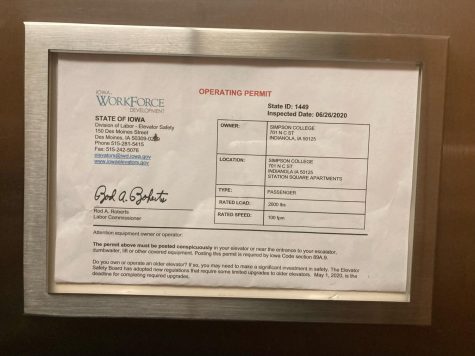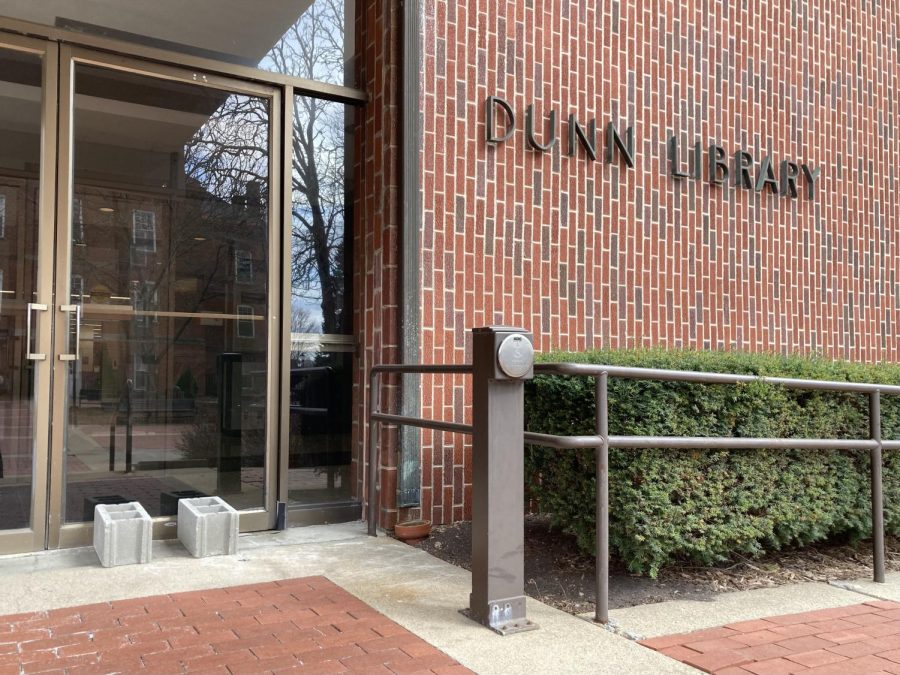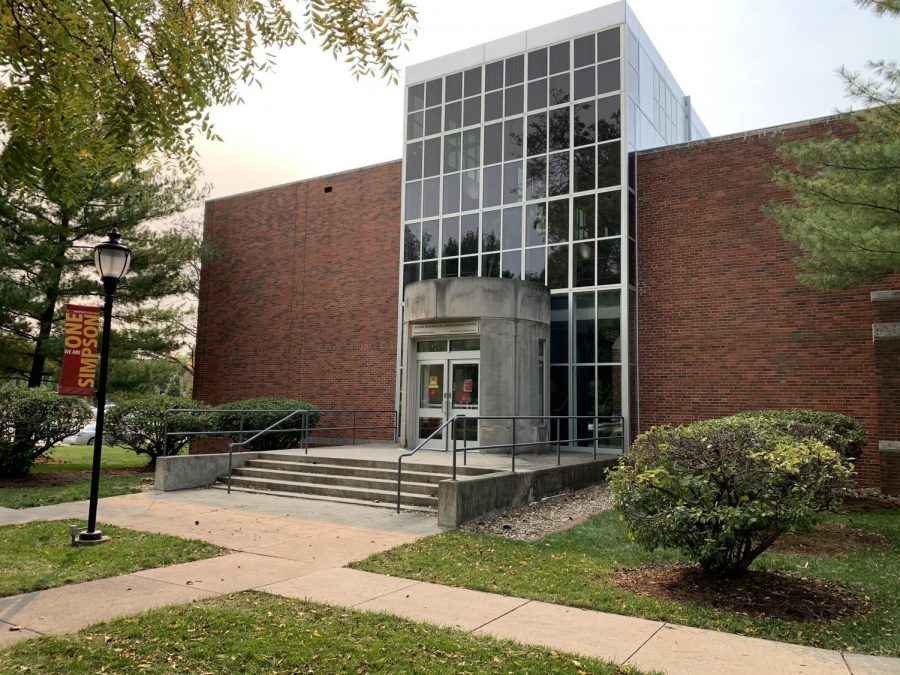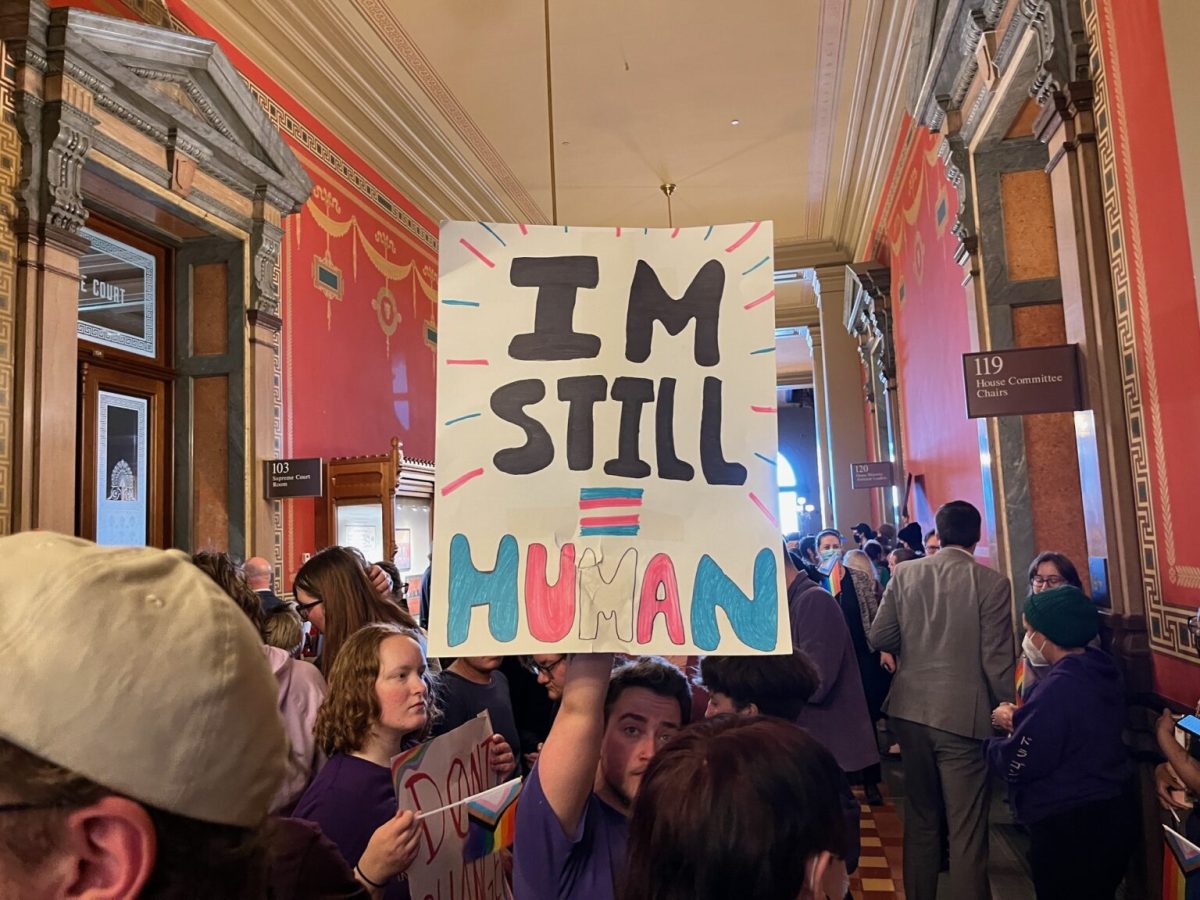An investigation of campus accessibility
April 5, 2022
Most students navigate Simpson’s campus without issue or hesitation. Others—particularly those who are physically disabled—may struggle with accessibility issues that go unnoticed by many.
The American Disabilities Act (ADA) covers public and private universities. The Fair Housing Act (FHA) covers student housing and dormitories. Section 504 of the Rehabilitation Act of 1973 covers federally funded programs and services—including most postsecondary institutions. All three laws can apply to student housing.
All new construction and alterations must comply with 2010 ADA Standards for Accessible Design. For existing facilities, private universities shall remove architectural barriers that are “structural in nature” and where removal is “easily accomplishable and able to be carried out without much difficulty or expense.”
Some examples of removing barriers include installing ramps, making curb cuts in sidewalks and entrances and rearranging furniture.
Simpson must accommodate students with disabilities in order to meet ADA standards. Elevators, ramps and automatic doors are important to making buildings accessible.
Upper-level housing is limited in its living options for disabled students. Clinton, Washington, Hamilton, Detroit and Weinman Apartments are not ideal for students using wheelchairs or other mobility aids.
Laundry facilities in a majority of the buildings are only accessible by using stairs. Colonial had a ramp for one of the back entrances, but it was removed in the fall.
Barker Hall and Station Square Apartments are the only residential buildings on campus that have an elevator, making the entire building wheelchair-accessible. Station Square is the most expensive housing option on campus.
There are also concerns surrounding the use of elevators for some disabled individuals. Recently, University of North Carolina student Laura Saavedra Forero, who uses a wheelchair, was stuck in her fourth-floor dorm room after the building’s elevator broke down. Saavedra Forero had to be evacuated by EMS, who spent 30 minutes navigating her down the narrow stairwell after she waited over an hour and a half for their arrival.
This wasn’t the first time she had issues with the elevators on campus, missing two weeks of class in the fall when an elevator in the class building broke down.
Multiple academic and residential buildings on campus have elevators to make them more accessible for students. As required by law, elevators must have a current operating permit posted at all times.

According to Iowa Code Chapter 89A, elevators shall be inspected “not less frequently than annually.” However, many campus elevators’ permits posted date back to mid-2020. The safety board may adopt rules providing for inspections at different intervals. It is unclear if Simpson has an exception. Director of Facility Management Brian Schultes was contacted but did not respond to the request for an interview.
Kresge Hall, Picken Hall and Buxton Hall are accessible only on the first floor. Community areas are not as easily accessible—the lounge, computer lab and laundry facilities in Buxton have a small set of stairs to get to them. Laundry facilities in Picken are located in the basement. Kresge’s computer lab and kitchen are located in the basement as well.
Accessibility is not an issue exclusive to housing. Students encounter accessibility issues all over campus: from blocked handicap accessible doors when it’s cold out to inoperable handicap door buttons.
The American Institutes for Research reports that a lack of accessibility greatly affects retention—46% of students with disabilities who graduated from high school enrolled in a postsecondary institution. Only 34% of those individuals enrolled in a four-year institution completed their education within eight years.
A 2018 survey found that 86% of universities enroll students with disabilities, but only 24% of schools polled said they offer those students assistance to a “major extent”.
Students with disabilities can work with Student Accessibility Services (SAS) to develop an individualized accommodation plan to ensure they get equal access to all aspects of their Simpson experience; however, this has become more difficult.
Monica Lewis served as the Director of SAS but began transitioning out of the position in March and is contracted to work five hours a week for the Center for Academic Resources until May Term. The college is currently searching for Lewis’ replacement.
According to Simpson’s website, “reasonable accommodations, as determined by the [Accessibility Services] Director, must be provided for all students who have a disability which affects a major life function.”






